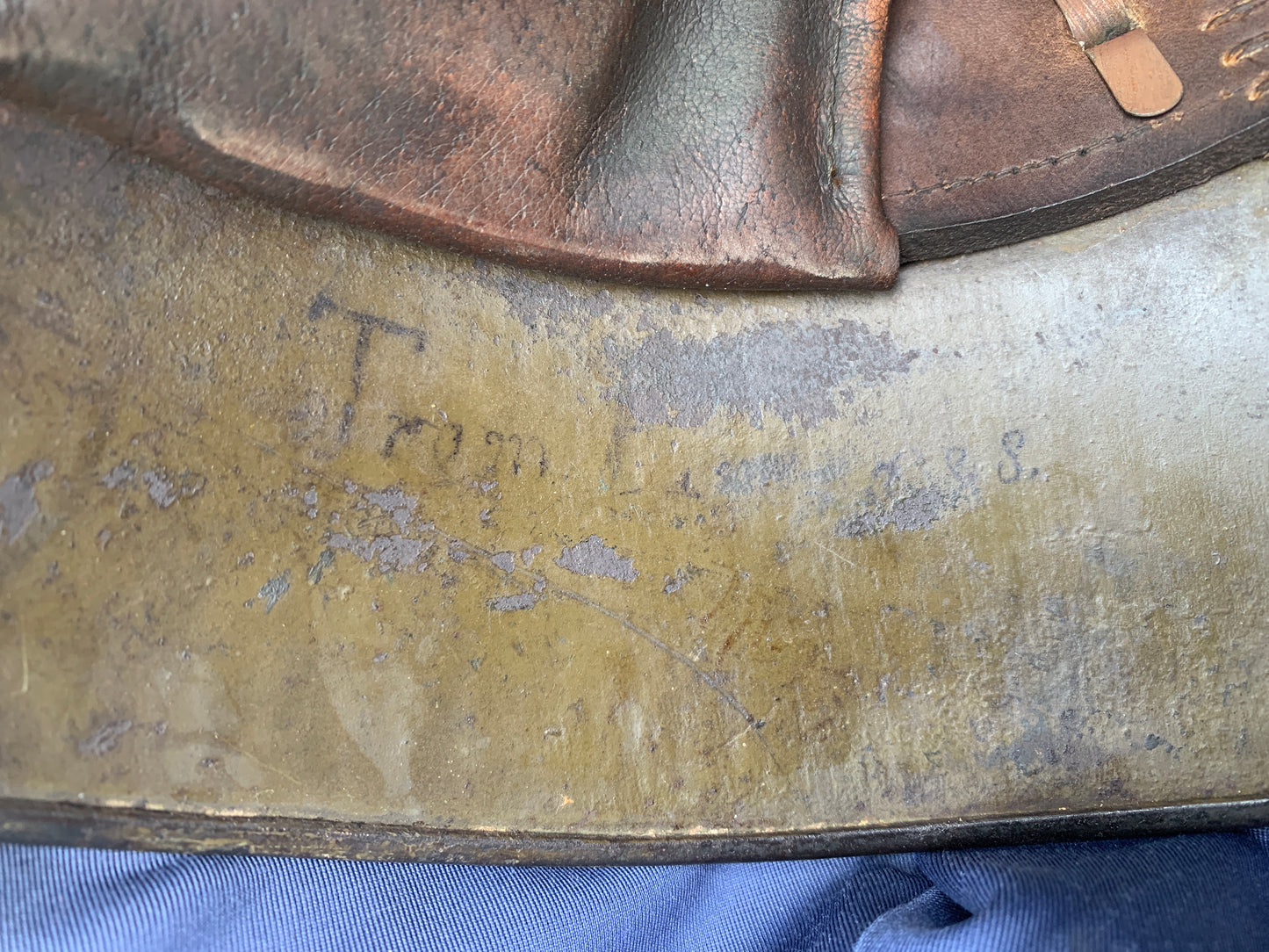Medieval & Military Treasures
WW1 German M16 Helmet – Large Size W66, Preserved Survivor
WW1 German M16 Helmet – Large Size W66, Preserved Survivor
Couldn't load pickup availability
The first “modern” steel helmets were introduced by the French army in early 1915, followed shortly thereafter by the British army. Germany began testing its own steel helmets at Kummersdorf Proving Grounds in November 1915, with additional field trials in December 1915 using experimental designs such as the “Gaede” helmet and captured Allied helmets. A finalized pattern was approved, and production commenced at Eisen- und Hüttenwerke AG Thale/Harz in spring 1916.
The M16 helmet evolved into the M18 model by the end of WWI and continued in service throughout the Weimar Reichswehr era and into the early years of the Third Reich, until replaced by the smaller, lighter M35 helmet in June 1935.
Description
This M16 helmet retains a significant portion of its original smooth pea green factory paint both inside and out. The interior left apron is clearly stamped with the manufacturer’s code and size, “W66”, indicating production by Hermann Weissenburger & Co., Stuttgart-Canstatt, and a size 66, large enough to fit most men comfortably today.
The liner is a high-end European reproduction, professionally aged to replicate authentic wear. It features three leather pads with two fingers each, backed with cotton pockets and padded pillow inserts, and includes an aged adjustment string. The chinstrap is also a reproduction, with lightly aged metal buckles while maintaining supple leather suitable for reenactment or film use.
A subtle personal touch: the original soldier wrote his name in pencil on the inside rear skirt, faint but appearing to read something like “Trom XXX”.
Collector’s Notes
• Condition: Excellent for a 100+ year-old helmet; no dents, cracks, or rust pitting.
• Authenticity: Original shell with authentic factory markings; reproduction liner and chinstrap for display or practical use.
• Historical Value: A classic WW1 German helmet reflecting both the engineering of the era and the everyday soldier’s use.
Share












